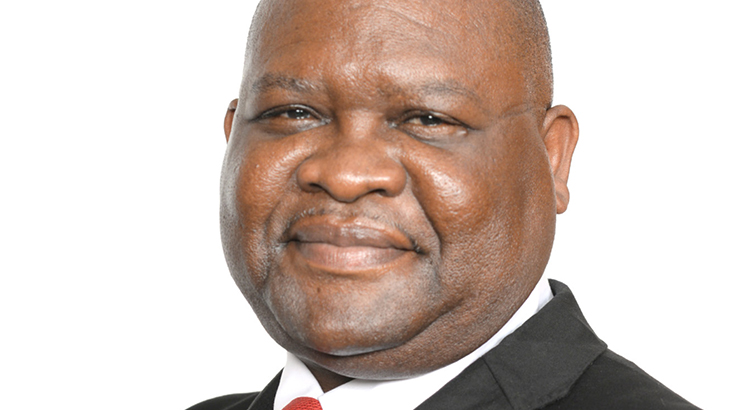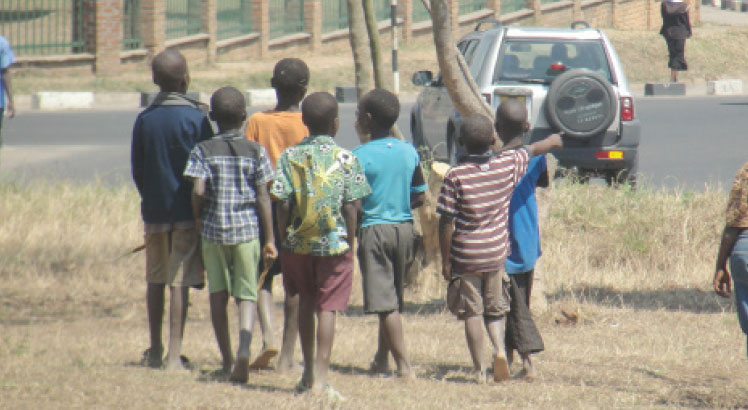Green Belt Authority (GBA) chief executive officer Eric Chidzungu marked a year since taking over the leadership mantle. The relatively new State-run institution has a critical role to improve the country’s food situation and economic landscape. Our News Analyst Clement Chinoko engages him on the progress, challenges and plans.
Chidzungu: Mixed bag
How has the going been since assuming the position?
It has been a mixed bag of exciting inputs. I started on a phase which will take the Authority to greater heights. Leading a group of dedicated people who want to do good for their nation has also been very exciting to me. One other great thing is seeing the Authority participating in national and international events such as trade fairs and international investment forums. I still stick to my promise of transforming GBA from being a subvented to a stand-alone commercial organisation which brings dividends to the government.
Greenbelt Authority’s role is to champion large scale commercial irrigation. What tangible projects have you implemented to live up to this?
Over the past few years, the Authority has taken substantial steps in establishing foundations upon which tangible developments have started mushrooming. I am happy to list the following: In Karonga district the Authority is constructing a rice processing, packaging and branding factory that is expected to benefit all rice farmers in the country, more especially in the North. This aims at commercialising rice farming because once the factory gets operational, there should be more rice to be sold both locally and internationally.
Which are these farms?
The Chipoka Mega Farm in Salima where we have cropped at least 80 hectares plus 40 hectares of cotton this past rainy season. There’s also a 78 hectare Nkopola Mega Farm in Mangochi and Nchalo Maize Mega Farm in Chikwawa where we have partnered with farmers and cultivated over 92 hectares. We have also partnered with other government agencies in producing maize such as Malawi Prison Service specifically at Mpyupyu Prison where we have cultivated 100 hectares and the Malawi Defence Force in Mchinji. We are also in joint ventures with the Salima Sugar Company and Malawi Mangoes whose products are sold in far countries.
How are those projects benefitting Malawians?
The main goal of these projects is to increase production and productivity for food security in the country and retention of the foreign currency through exports of some of the products. However, while driving to that goal, along the way the projects are creating employment for a lot of Malawians and building the capacity of many farmers that are participating in Mega Farm. So, Malawians are already benefitting from this arrangement.
Perennially, millions of Malawians face food shortages and other economic challenges. How do you justify your existence amidst the suffering?
Our operations are supposed to translate into socio-economic gains. As you can see our mandate is to transform people’s livelihood, both for national food security and commercialisation, translating to reserving forex. We were established almost six years ago to spearhead these two goals. You can appreciate that it’s a young organisation that has operated the first four years without a strategic plan. We have just formulated one last year, which will be launched shortly. So, it’s a little bit too early to insinuate that the GBA is irrelevant.
What are the key challenges interfering with implementation of your mandate?
The first key challenge is the need for a lot of capital injection to do large scale commercial irrigation. The infrastructure, the mechanisation, the agro-processing will need a lot of capital which cannot be readily available from Treasury. If anything they can only be available from other financiers, and we are already engaging in serious negotiations with some of them, and some of the negotiations have already shown that they will bear fruit starting this year.
Some of the Greenbelt Authority projects are associated with fraudulent dealings. The most recent incident was alleged abuse of K2.5 billion through a cotton production initiative in Nchalo. Is taxpayers’ money safe with you?
The K2.5 billion cotton issue that happened in Nchalo is a big dent to the Authority, but to say due to that the Authority should be labeled as engaging in fraudulent dealings I think wouldn’t be very right. These are isolated incidents which we are dealing with. We are a government entity and we are audited by the National Audit Office. Actually, we have instituted a forensic audit to look at how we have been operating for the past five years and that report will be given to the National Audit Office and subsequently processed to Parliament. We instituted a forensic audit into the Nchalo issue. The Fiscal Police and Anti-Corruption Bureau are on it.
What are the key elements of your strategic plan which have just developed?
Key areas in this plan are about the financing of the projects. We are engaging financiers through the media. We have requested investors in various categories to join hands with us. Be it land owners, financiers and those who want to team up with us in production for high value crops, processing and even off-taking or operations with regards to our working with cooperatives. That is the main goal we are pursuing to ensure that the GBA turns around from being a subvented institution to one that produces resources for the government, be it forex or dividends..
The post Sowing economic seeds in irrigation appeared first on The Nation Online.
 Moni Malawi
Moni Malawi 

